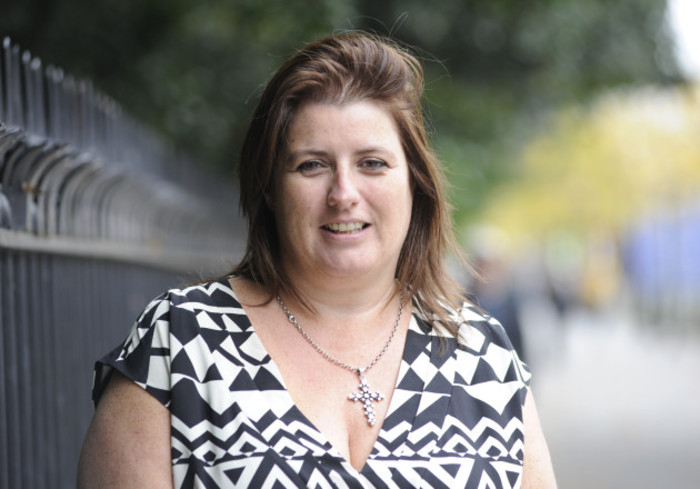'We need to move away from this attitude that if you act like a man, you'll survive in business'
Companies need to look at the good business case for having more women in senior roles.
THERE NEEDS TO be less of a focus on trying to “fix” women in business and more of a discussion about the business case for diversity in the workplace.
That is according to KPMG tax partner Caroline O’Driscoll, who spoke as part of a panel discussion at the 10th annual Women Mean Business conference in Dublin yesterday.
“I think we’ve focused a little bit too much in the last 10 years on trying to ‘fix’ women. Forget it,” she said.
O’Driscoll argued that fixing gender imbalance in business, especially at senior management level, should be pitched as a wider societal issue, rather than solely a problem that affects women.
“It’s not about being the same,” she said. “I don’t think men are the same as women – and that’s not a bad thing.
“We’ve had this attitude that if you look like a man, walk like a man, talk like a man, you’ll survive in business. We need to move away from that and talk about diversity.”
Business case
The chief executive and founder of media production company Athena Media, Helen Shaw, chaired the discussion.
She agreed that encouraging more female inclusion at board level is “not just a nice thing” – it makes for a sound business case, suggesting that it “benefits companies, turnover and profit”.
Rosemary Delaney, who founded Women Mean Business and is managing editor of the association’s magazine, said she believed “men should play a bigger role” in the conversation around encouraging more diverse boardrooms.
Caroline O’Driscoll agreed and said that having men lead the debate around diversity “is not a bad thing”.
“We have a tendency to alienate men from this discussion a little bit,” she said. “Actually, if we are to achieve real change, they have to be part of it. We’ve somehow made (diversity) a woman’s issue. It’s not, it’s a societal issue.”
She added that it would be a good idea to have a high-profile figure from government or the corporate world to serve as an ambassador to the debate, “and it wouldn’t be bad to have a man” in that role.
 Women Mean Business founder Rosemary Delaney
Women Mean Business founder Rosemary Delaney
Social media
Marissa Carter, whose Cocoa Brown tanning products famously got the seal of approval from Khloe Kardashian, said that women “underestimate how much power is at their fingertips”, citing a string of statistics that show the majority of social media users are female.
“If large companies like Boots and Cocoa Brown, where 90% to 95% of their customers are women, are able to use the voice that they have on social media to get directly to those women, then we are able to create change through our own influence and the easy access that we have to women.”
Carter also said that building a strong network of female advocates is essential for women entrepreneurs.
“In the first six months of setting up Cocoa Brown, I joined a network called Going for Growth,” she said. “I had a very, very strong network of successful entrepreneurs around me that I was able to meet with once a month and they would hold me accountable. Basically, they were my free board.”
Changes
Nevertheless, Rosemary Delaney said that “change isn’t happening fast enough”.
“If you look at how far we’ve gone – or haven’t gone, as the case may be – on boards and in politics, something has to change,” she said.
When asked what changes she would like to see within the next five years, Delaney said: “We need more role models. I would like to see more role models portrayed in the media.”
As well as working at KPMG, Caroline O’Driscoll co-founded iWISH, a non-for-profit organisation that encourages secondary schoolgirls to explore careers in science, technology, engineering and mathematics.
 IWISH encourages women to study science-technology
IWISH encourages women to study science-technology
When asked what progress she would like to see within the next five years, O’Driscoll said hoped that iWISH was able to wind down its operation.
“My greatest desire is that it is no longer needed and that we can just liquidate the company. But we’re a long way off that. In the last decade there has been very little progress.”
Citing figures provided by higher education authorities in Ireland, O’Driscoll said: “In 2004, 17% of first-time entrants into ICT were women. That has not changed by one single percentage point. Engineering has just improved from 23% to 24%. Maths has gone backwards from 35% to 22%.”






